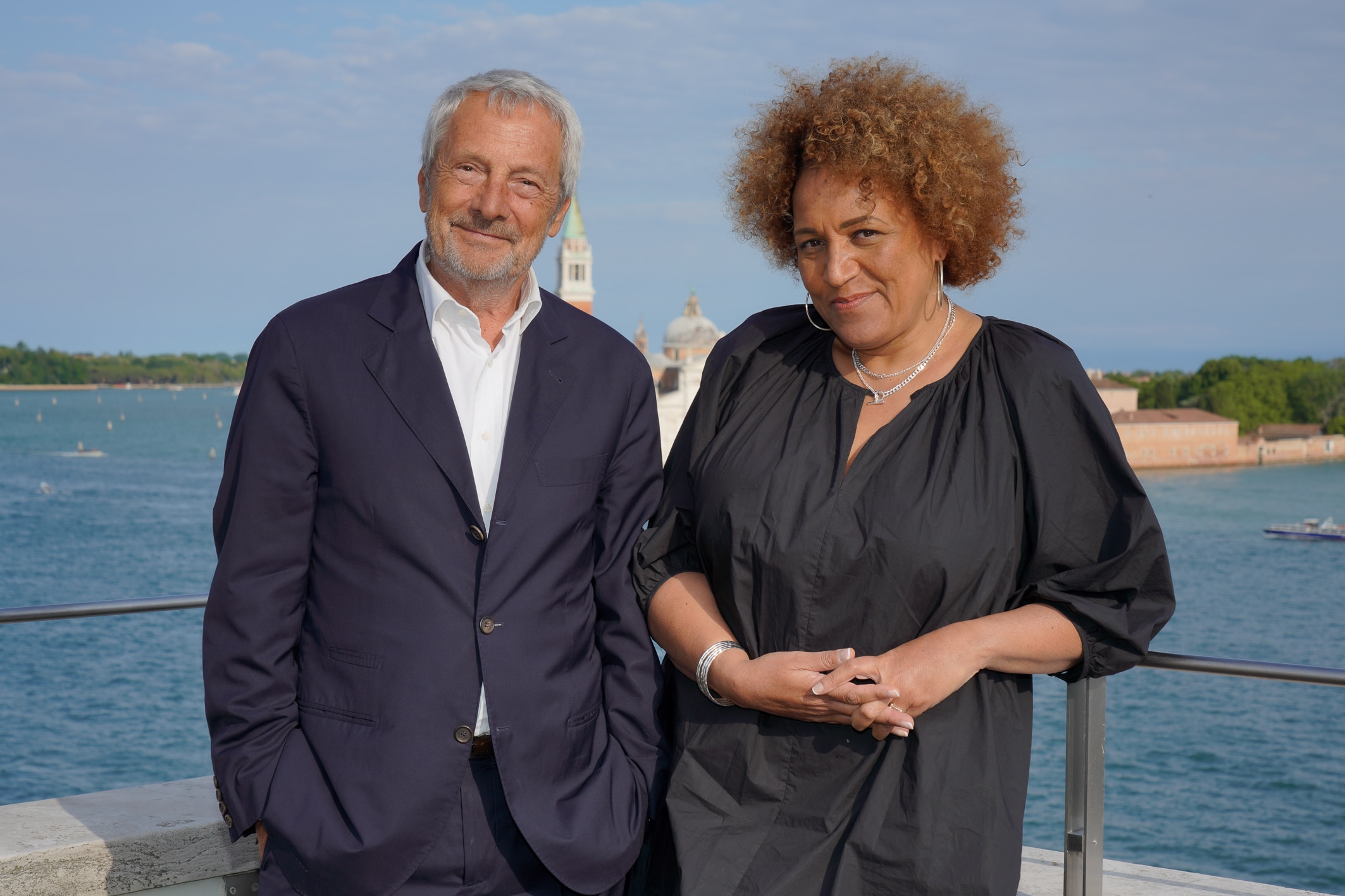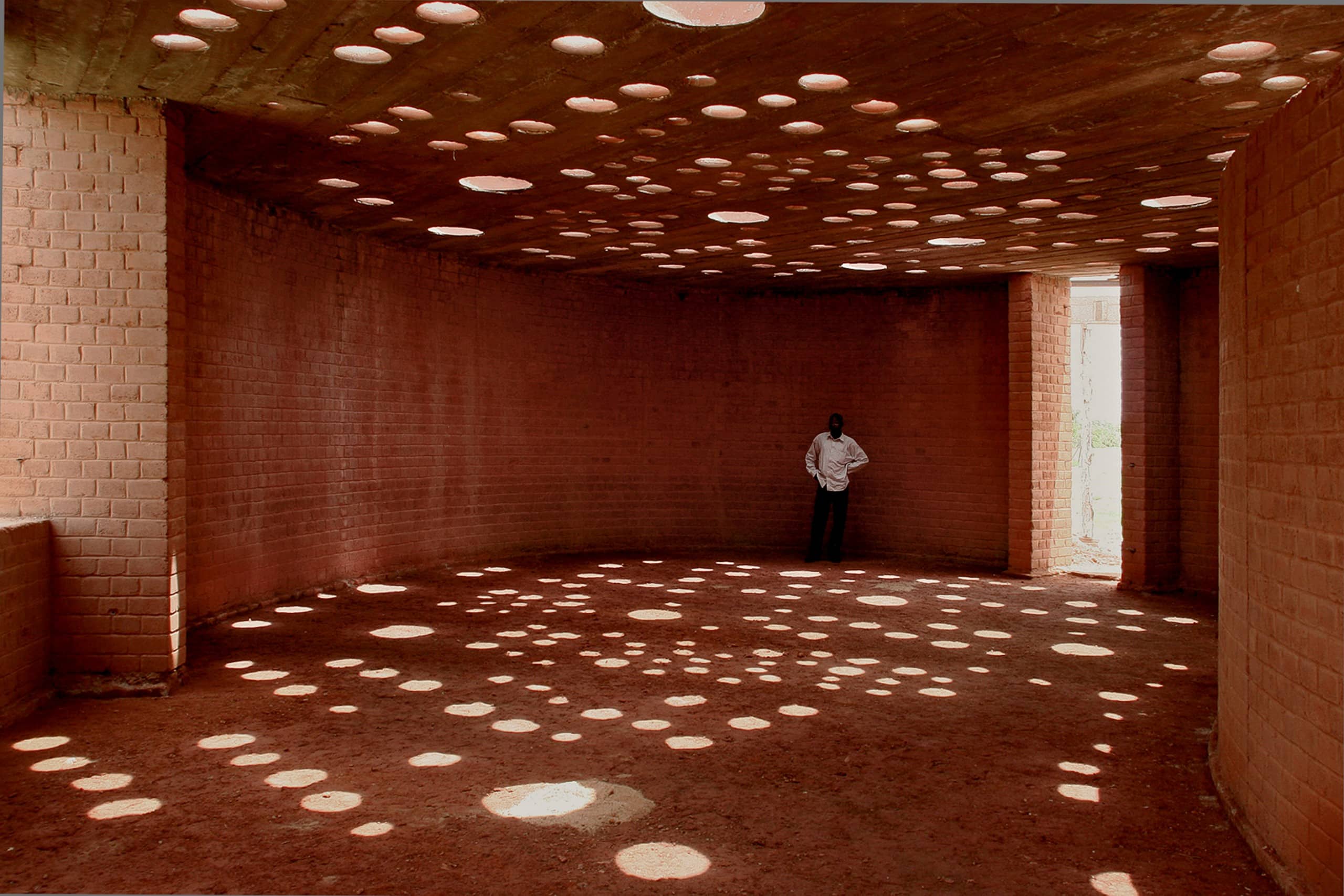Venice Biennale of Architecture 2023: Laboratory of the Future

This year’s Venice Architecture Biennale addresses the future viability of architecture as a whole under the motto “Future Lab”. Sustainability, youth and the continent of Africa are at the center of the ambitious program. While the Ghanaian-Scottish architect Lesley Lokko curates the event, the two focus themes are no less on point with the times: decolonization and decarbonization.
Billboard
Skyscrapper
Halfpage
Update:
Brazil has received the Golden Lion for the best national contribution at the ceremonial opening of the 18th Architecture Biennale in Venice. Their national pavilion, entitled “Terra”, deals with the role of the past in understanding the future.
African diaspora under the microscope at the Venice Biennale of Architecture
The Biennale of Architecture in Venice is the event of the year for architects. Everyone interested in current trends of the game who can stand a huge crowd is trying to get there at least once. It’s an artsy pilgrimage towards the historic city at the upper Adriatic Sea, where the biennial resurrection takes place. The motto of 2023’s event is “Laboratory of the Future”—quite an ambitious field, which needs to be taken care of in the most diligent way.
“The ‘story’ of architecture is therefore incomplete. Not wrong, but incomplete.” – Curator Lesley Lokko
This year, it’s with high expectations that we await the Venice Biennale of Architecture to happen: Architecture never faced a greater dilemma than it does today. Architecture is seen as a noble art of structural design, dedicated with goodwill to support the society. But this very industry is responsible for a large part of the climate crisis. Carbon emissions, soil sealing, wasteful use of resources, bad labor conditions, discrimination: All these are only some of the issues we have to face in architecture. And Biennale curator Lesley Lokko aims to address them at this year’s exhibition.
With “Laboratory of the Future” she merges her own fields of expertise as an architect, researcher and author with the spirit of La Biennale. Lokko, among other things, is also founder and director of the African Future Institute (established in 2020). She sees Africa as the place where the future is already in the present. Therefore, Lokko’s Venice Biennale of Architecture engages deeply with the history of the continent and its diaspora, of which she’s a part.
Incomplete History
Nowadays, people with African heritage are scattered all around the world. This inspired Lesley Lokko to think about what constitutes culture. While we tend to see culture as the “sum total stories we tell ourselves, about ourselves”, Lokko dares to go beyond that point. She questions the “we” in this story altogether: “In architecture particularly, the dominant voice has historically been a singular, exclusive voice, whose reach and power ignores huge swathes of humanity — creatively, conceptually — as though we have been listening and speaking in one tongue only. The ‘story’ of architecture is therefore incomplete. Not wrong, but incomplete.” This is the starting point of this year’s Venice Biennale of Architecture, where we are bound to write history. The focus lies on young and small teams, with 5 or less people and the average age of 43 years.

What Biennale?
Beforehand, Lokko and her team also dissected the notion of the architect itself as the acting subject of the matter. This is why the Biennale doesn’t mention participants as “architects” but as “practitioners”, therefore to show how architecture isn’t solely produced or designed by architects. But there are a lot of different professions which shape our surroundings, such as landscape architects, academics, designer and engineers. The melting pot of this year’s Venice Biennale of Architecture is not limited to cultural or ethnical origin, but spreads onto the professional derivation as well. For the first time, the Curator’s Special Projects are as large as the other categories. Lesley Lokko’s “Guests from the Future” encompasses the works of young African and diasporic artists who engage with both major topics of the Biennale: decolonisation and decarbonisation.
Displayed artists among others are:
- Black Females in Architecture (London, UK)
- Jürgen Strohmayer und Glenn DeRoché (Accra, Ghana)
- MOE+ Art Architecture (Lagos, Nigeria)
- New South (Paris, France)
- Rashid Ali Architects (Hargeisa, Somaliland; London, UK)
- Cartografia Negra (São Paulo, Brazil)
Medium Rectangle
Halfpage


Critical analysis in the German pavillon
The number of exhibiting nations this year rose to 63 in total, with Niger debuting altogether and Panama hosting a pavilion on their own for the first time. The German pavilion opens under this year’s motto “Open for Maintenance — Open due to renovation”. The curators’ team consists of an editorial staff of the architecture and urbanism magazine ARCH+, the architecture firm Summacumfemmer and the Büro Juliane Greb. The main topic addresses the wasteful use of materials and resources of architecture itself. It also directs to the process of developing and building the pavilion of the Venice Biennale.
Starting point of the future and the Biennale College Architettura
Roberto Cicutto, president of La Biennale, states that working on the future necessitates a common starting point. For Scotland-based Lokko, said point is Africa with its economical, climatic and political characteristics. But the choice of focus at the Biennale isn’t feed solely by her own personal background, which origins in Ghana: “Much of what is happening to the rest of the world has already happened to us. Let’s work together to understand where we have gone wrong so far and how we must face the future.” Roberto Cicutto is certain that the Venice Biennale of Architecture bears responsibility to seize this undertaking. Architecture as a whole needs to take a lead role and act as a pioneer for other disciplines.
The “Carnival”, a six month accompanying program consisting of events, lectures, panel discussions, films, and performances, is the addendum to a new concept: Young practitioners get the chance to work with fifteen international renowned tutors in the “Biennale College Architettura”. Nearly a thousand people followed the global call for application. Fifty practitioners not only face the task to find new ways of coping with this year’s leading theme “Decolonisation and decarbonisation”, critical thinking and creative energy. Documentary filmmaker Ángel Borrego Cubero also filmed the process, as the College marks the beginning of a new collateral project off the traditional exhibition. It will accompany and influence it in the long term.

Carbon neutrality as a challenge at the Venice Biennale of Architecture
The Biennale is determined to reduce their carbon emissions. It was the 78th International Film Festival 2021, which was the first carbon neutral certified event in Venice. In the wake of the festival, the Biennale examines its design, installations and the operation of all events, to reduce carbon footprint in total. As a result, the exhibition got certified according to the International Standard PAS2060 by RINA. Like many other enterprises, La Biennale sets to achieve the goal through reduction of emission on the one hand, and buying carbon certificates on the other. Such certificates are a kind of financial compensation of effected emissions to support climate protecting measures. In the case of La Biennale, such measures contain projects in India and Colombia. Additional site methods in Venice are:
- Use of sustainable energy
- reduction of materials and recycling at end-of-life
- Reusing exhibition materials and equipment
- focus on vegetarian food and regional suppliers
- reducing and optimising logistics and travel routes
The concept can adapt and extend for a long-term implementation. That leaves the problem that visitors create their very own carbon footprint by travelling individually to the Venice Biennale of Architecture. La Biennale therefore is determined to address this issue publicly further on.
Venice Biennale of Architecture
The Venice Biennale of Architecture takes place from 20th of May to 26th of November 2023.
Opening hours:
From 20 May to 30 September: 11 am to 7 pm
From 1 October to 26 November: 10 am to 18 pm
Closed on Mondays with exceptions.
More information on www.labiennale.org
Not only Venice will be this years’ epicentre of architecture, but also Copenhagen: The Danish Capital has been chosen as the World Capital of Architecture of 2023 by UNESCO. Read more about this decision here.












